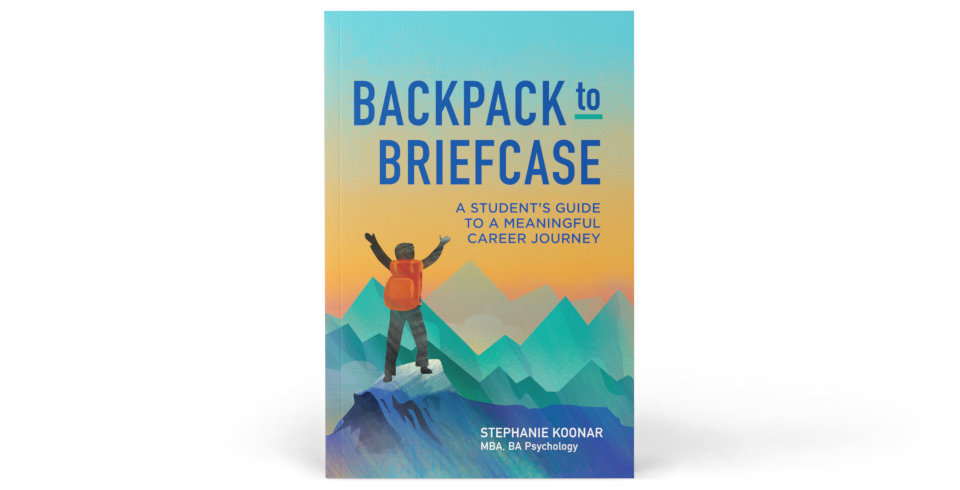4 Key Questions to Guide Your Future Career
Are you often asked what you want to do after graduation? Do you have a good answer?

"What will you do when you graduate?"
Do you cringe when people ask you this question? Does this question about your future stop you in your tracks? Many students feel lost and confused, and aren't sure of the next steps. They're stuck, unsure of how to move forward, and this may be stressful. If this is you, you're not alone.
However, there are 4 key questions that can inform your decisions about a future career — and help reduce your anxiety. First, let me introduce you to the Exploration Mindset.
The Exploration Mindset
One way to reduce stress and anxiety around future career decisions is to embrace an Exploration Mindset. Begin by taking a breath, relaxing, and picturing yourself on an adventure. You're on a life-long journey where you will be continually learning about yourself and discovering opportunities to use your talents to make a difference in the world.
In my recently published book, Backpack to Briefcase, A Student's Guide to a Meaningful Career Journey, written for people in their teens and twenties, I provide activities to introduce you to an Exploration Mindset.

The book is divided into three phases; Discover, Build, and Launch. The book begins with the Discover phase, asking you to spend some time reflecting on what you're naturally good at and what's meaningful to you — and you're introduced to the ikigai
framework that includes the 4 key questions to help guide your career decisions.
The ikigai framework
Ikigai is a Japanese word that roughly translates to your "reason for being." You can identify your ikigai by discovering the answers to four questions posed in the circles in the diagram shown here. Your ikigai is found where the four circles intersect.

Source: Stephanie Koonar, Backpack to Briefcase, A Student's Guide to a Meaningful Career Journey, p. 14.
The ikigai circles capture:
- Circle 1: What You Love
- Circle 2: What You're Good At
- Circle 3: What the World Needs
- Circle 4: What You Can be Paid For
So, are there ways to help you answer these questions? Here are some suggestions:
Circle 1: What You Love
Reflect on your hobbies and interests. What do you do in your spare time? Consider why you love to do those hobbies or activities. If you don't have a lot of interests, consider stepping out of your comfort zone to join a club, take different courses, or explore new passions and interests.
Circle 2: What You're Good At
There are many assessments that can guide you to identify what you are good at. Perhaps your school provides assessments such as the Myers-Briggs® or CliftonStrengths® assessments. The results identify your strengths and unique traits and will provide you with some insights into what you are naturally good at.
Circle 3: What the World Needs
The world needs your talents! There are many issues to solve. What are you most concerned about in the world? Consider the challenges you're passionate about solving. Recognize that there are organizations working on solving these issues. You can research these organizations and the careers of the people working there to find out what resonates with you.
Circle 4: What You Can be Paid For
It's important to be financially secure in your future career. There are ways to access labour market information, such as industry growth rates, salary ranges and the skills forecasted to be in demand. Key data can be found on government websites, such as www.workbc.ca. This information can help you discover new industries and careers to pursue, ensuring you are prepared for a career that will be in demand when you graduate.
In summary, remember that you're on an adventure! Embrace the Exploration Mindset. In addition, the intersection of your answers to the four questions in the ikigai framework will help you to discover your ikigai, or "reason for being." This information provides you with a touchstone as you evaluate and select the career options that will be the best fit for you.
I wish you well as you embark on your meaningful career journey.
Check out Backpack to Briefcase
Stephanie Koonar is the co-founder of PeerSpectives Consulting, a marketing professional, academic, career coach, and workshop facilitator, as well as an award-winning college instructor who has taught over 4,000 students. Stephanie is the author of Amazon best seller "Backpack to Briefcase, A Student's Guide to a Meaningful Career Journey."